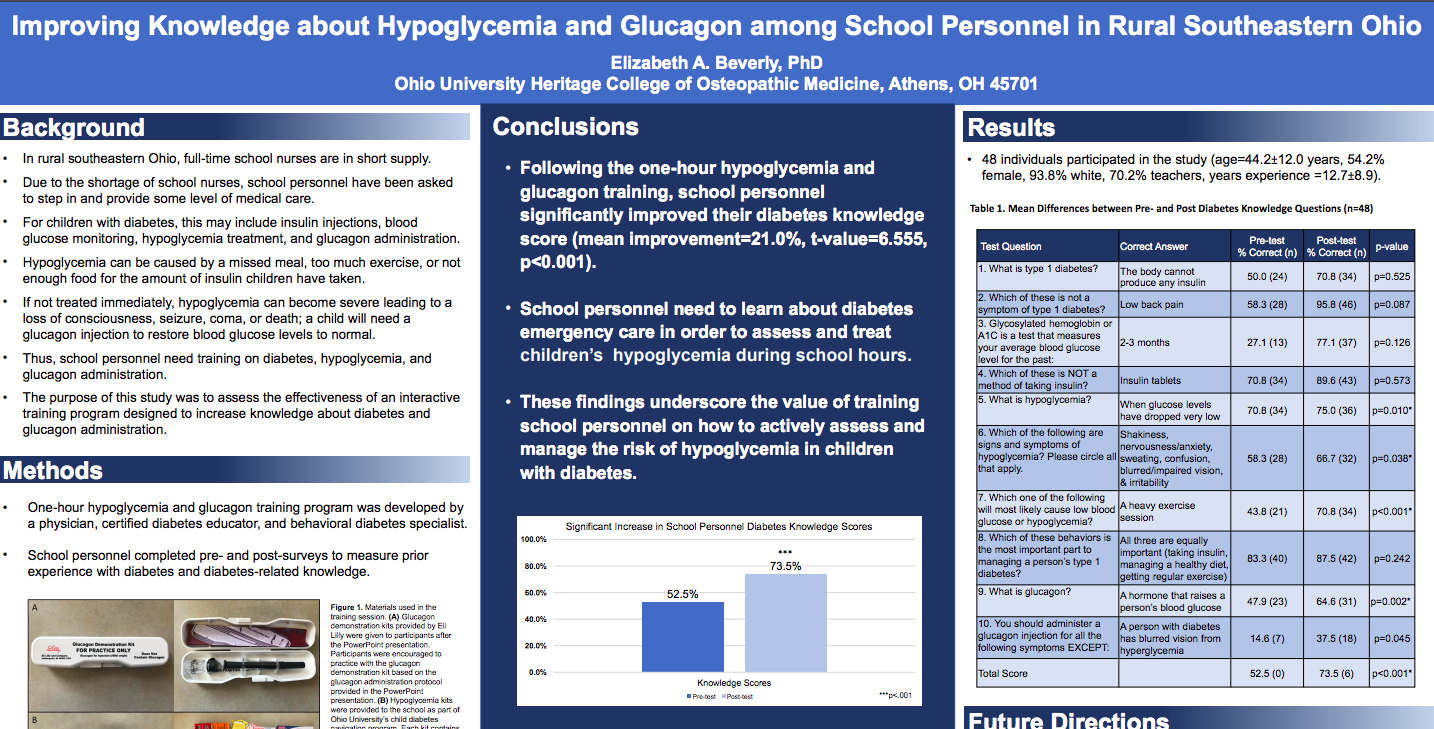
Leading through advocacy, education, and relationships
Improving Knowledge about Hypoglycemia and Glucagon among School Personnel in Rural Southeastern Ohio
Category: 2020
Author: Elizabeth Beverly
Institution Affiliation: Ohio University Heritage College of Osteopathic Medicine
Introduction: In rural southeastern Ohio, full-time school nurses are in short supply. Most school districts share one full-time nurse for students in kindergarten through 12th grade, with nurses traveling between schools during the week. In response to the shortage of school nurses, school teachers and administrators have been asked to step in and provide some level of medical care. For children with diabetes, this may include insulin injections, blood glucose monitoring, hypoglycemia treatment, and glucagon administration. Thus, brief training programs for school personnel on diabetes, hypoglycemia, and glucagon administration are necessary. The purpose of this study was twofold: 1) to assess diabetes, hypoglycemia, and glucagon knowledge among teachers and staff at a local high school, and 2) assess the effectiveness of an interactive training program designed to increase knowledge about diabetes and glucagon administration. Methods: A diabetes and glucagon administration training program was delivered to teachers and staff of a local school in southeastern Ohio. School personnel completed pre- and post-surveys to measure prior experience with diabetes and diabetes-related knowledge. Fisher’s exact tests were performed for each knowledge question to compare the distribution of correct and incorrect answers. Results: A total of 48 individuals participated in the study (age=44.2±12.0 years, 54.2% female, 93.8% white, 70.2% teachers, years experience=12.7±8.9). Three-quarters (77.1%; n=37) of participants reported having taught or worked with students who have diabetes, yet 56.8% (n=25) felt that the school was capable of managing diabetes-related emergencies. The majority of school personnel (65.2%; n=30) were willing to administer glucagon if needed; however, only 18.8% (n=9) had received training in diabetes emergency care. Following the training, participants scored significantly higher on diabetes knowledge questions about hypoglycemia (p=0.024), causes of hypoglycemia (p<0.001), and glucagon (p=0.003). Conclusion: These findings suggest that this brief training program on diabetes, and glucagon administration improves diabetes, hypoglycemia, and glucagon knowledge of teachers and staff who work with children with diabetes. This work is ongoing and future plans include providing virtual training to school personnel in rural Ohio.
Watch Video
 Phone: 567-712-0697
Phone: 567-712-0697
